When it comes to burning fat and improving health, it’s a little bit more complicated than simply eating less and moving more. There are actually many reasons for why more than 2/3 of Americans (and Westerners in general) are now overweight.
Often, when you feel hungry, it is because your body is trying to fill its need for nutrients. When you eat poor-quality foods on a regular basis, your brain will increase your appetite in an effort to obtain the nutrients your body needs to function at optimum levels.
Unfortunately, the foods we crave are not always healthy and nutritious. In fact, even when we try to eat a healthy diet, it can still be difficult to get all the nutrients our bodies need.
That’s why I’ve made this list, showing you what will get you the most bang for your nutritional buck when it comes to your diet.
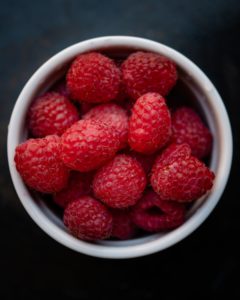
Of all the berries, raspberries contain the most fiber. There are 15 grams of carbohydrates per cup, of which 8 are fat-fighting fiber (over 30% of the recommended intake!). The fiber boost in raspberries will help keep you feel full for a longer period of time, allowing you to eat less without getting hungry.
Raspberries have been shown to contain ketones, which has been shown in animal studies to prevent an increase in body fat.
You can use raspberries in smoothies, salads, in chia seed pudding, to sweeten up your oatmeal, or just enjoy on their own.
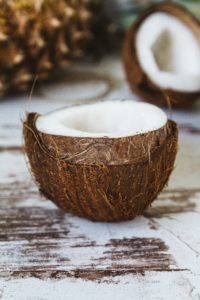
What makes coconut oil so special is that it contains medium chain triglycerides (MCT), which are more rapidly metabolized (burned) as fuel than other fats. This means that instead of being stored as fat, the calories contained in MCT are converted into fuel for immediate use by organs and muscles.
MCT oils have also been shown to enhance fat burning, making them the perfect addition if weight loss is your goal. They have also been shown to support increased energy levels and satiety while reducing cravings.
MCT oil
As far as brain function goes, MCT oil is like rocket fuel because it enhances ketone production. Ketones, of course, are a more efficient fuel for your brain, which is great for focus and productivity, especially while at work.
Coconut or MCT oil can be used as an addition to your smoothies. Because it’s stable at high temperatures, you can also use coconut oil for all cooking purposes on a stovetop or in the oven, like for roasting vegetables.
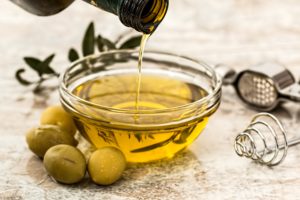
Olives and olive oil are full of Vitamin E and antioxidants. These help fight the free radicals in your bloodstream that may be the cause of some of the effects of aging, as well as certain cancers.
Olive oil contains 77% monounsaturated fat, which is associated with lowering LDL (the "bad" cholesterol) while also raising HDL (the "good" cholesterol) in your blood. Adding olives and olive oil to your meals will also increase satiety and reduce cravings.
Olive oil is very versatile and can be used in dressings and on veggies. Keep in mind it has a relatively low smoke point, so it shouldn’t be used for cooking.
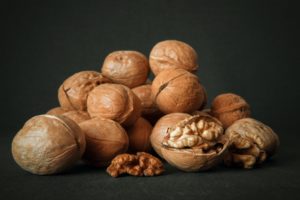
Walnuts contain an antioxidant compound called ellagic acid that helps to block the metabolic processes causing inflammation. Researchers have found that people trying to lose weight were three times more likely to stick to a diet that included nuts and nut butters.
One study found that adding walnuts into the diets of diabetics improved fat and energy balance. Walnuts are also a good source of plant-based Omega-3 fats, natural phytosterols and antioxidants that are powerful free-radical scavengers. Walnuts have also been shown to reverse brain aging in rats and boost heart health in people with diabetes.
Use these nuts in salads, healthy desserts, breakfast cereals, and trail mix recipes. Since they are portable, they also make a great snack when you are on the go. Choose raw, unsalted walnuts.
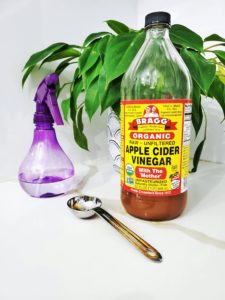
Apple cider vinegar (ACV) helps your body to break down and derive nutrients from fats and protein. This will lead to a faster metabolism and more vitality. Both apple cider vinegar and raw apples contain the fiber pectin, which has been shown to increase a person’s sense of fullness while also decreasing their desire to overeat or snack.
Studies also show that ACV also helps control blood sugar levels. Another benefit is that it helps to create an alkaline environment in the body, which promotes overall health and well-being.
You should always dilute apple cider vinegar before drinking it. The easiest way to enjoy it is by adding a tablespoon of ACV to a glass of water. You can even use it as a salad dressing -- top your greens with some extra-virgin olive oil and a splash of vinegar if you like it tangy.

Organ meats are packed with a number of important nutrients like iron, thiamin, folate, selenium, phosphorus, zinc, CoQ10 and several of the B vitamins. Many of these nutrients improve metabolism and promote the production of collagen and elastin, which make you look younger. Getting enough nutrients in your diet will give your body everything it needs for health, and will also keep you from craving unhealthy foods throughout the day.
Since these organs tend to bioaccumulate toxins (along with the beneficial nutrients), only consume organ meats that have come from pastured or grass-fed, organically-raised animals.

Studies show that an extract in spinach called thylakoids decreases food cravings by 95% and increases weight loss by 43%. One study showed that taking thylakoids reinforces the body’s production of satiety hormones, which leads to better appetite control.
Even though virtually all vegetables contain a wide variety of phytonutrients—including flavonoids and carotenoids—spinach can claim a special place among vegetables in terms of its phytonutrient content. Researchers have identified more than a dozen different flavonoid compounds in spinach that function as anti-inflammatory and anti-cancer agents.
But even when unrelated to cancer, excessive inflammation has been shown to be less likely following consumption of spinach. Particularly in the digestive tract, reduced inflammation has been associated not only with the flavonoids found in spinach, but also with its carotenoids. Neoxanthin and violaxanthin are two anti-inflammatory epoxyxanthophylls that are found in plentiful amounts in the leaves of spinach.
Spinach can be sautéed, added to soup, or eaten raw in smoothies, juices, and salads.

Grass-fed beef contains much more Omega-3 than conventionally-raised beef. And it doesn’t contain the hormones, antibiotics, and grain/corn/soy residues that are fed to conventionally-raised cows. When Omega-6 greatly outnumbers Omega-3, it causes inflammation.
Grass-fed beef also contains high levels of conjugated linoleic acid (CLA). Studies show that CLA helps with weight loss and also fights against diseases such as cancer and chronic inflammation. Grass-fed beef is also a good source of creatine, which gives your muscles more energy when you are working out.
Use grass-fed beef in place of conventional beef in recipes.
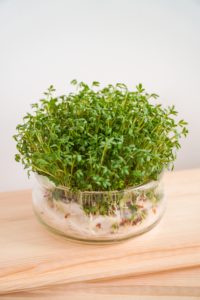
Eating this leafy green raises key antioxidants that fend off damage caused by free radicals which contribute to DNA damage. One study showed that when individuals ate 3 ounces of watercress daily for eight weeks, they experienced less DNA damage after repeated bouts of high intensity treadmill training.
The researchers also found that watercress had the same effect when participants ate it just 2 hours prior to training, even if they hadn’t been eating it for months. And recently, the CDC reported that among 41 other vegetables, watercress is the most nutrient-dense of all foods!
Add watercress to a garden salad, veggie wrap, or to a green juice.
If these foods are not anything you normally buy, it might feel a little overwhelming on where to begin.
My best advice is to choose one that you like or think that you could find a good recipe for, and work it into your diet. After you’ve conquered that, choose another. Before you know it, most of the foods on this list can be a regular part of your meals.
If you’re serious about getting your energy back, then I invite you to check out my FREE Masterclass. In it, you’ll learn about how to get out from under your fatigue problem, and how my approach is different from anything you’ve tried before.
CLICK HERE to watch this FREE training today!
